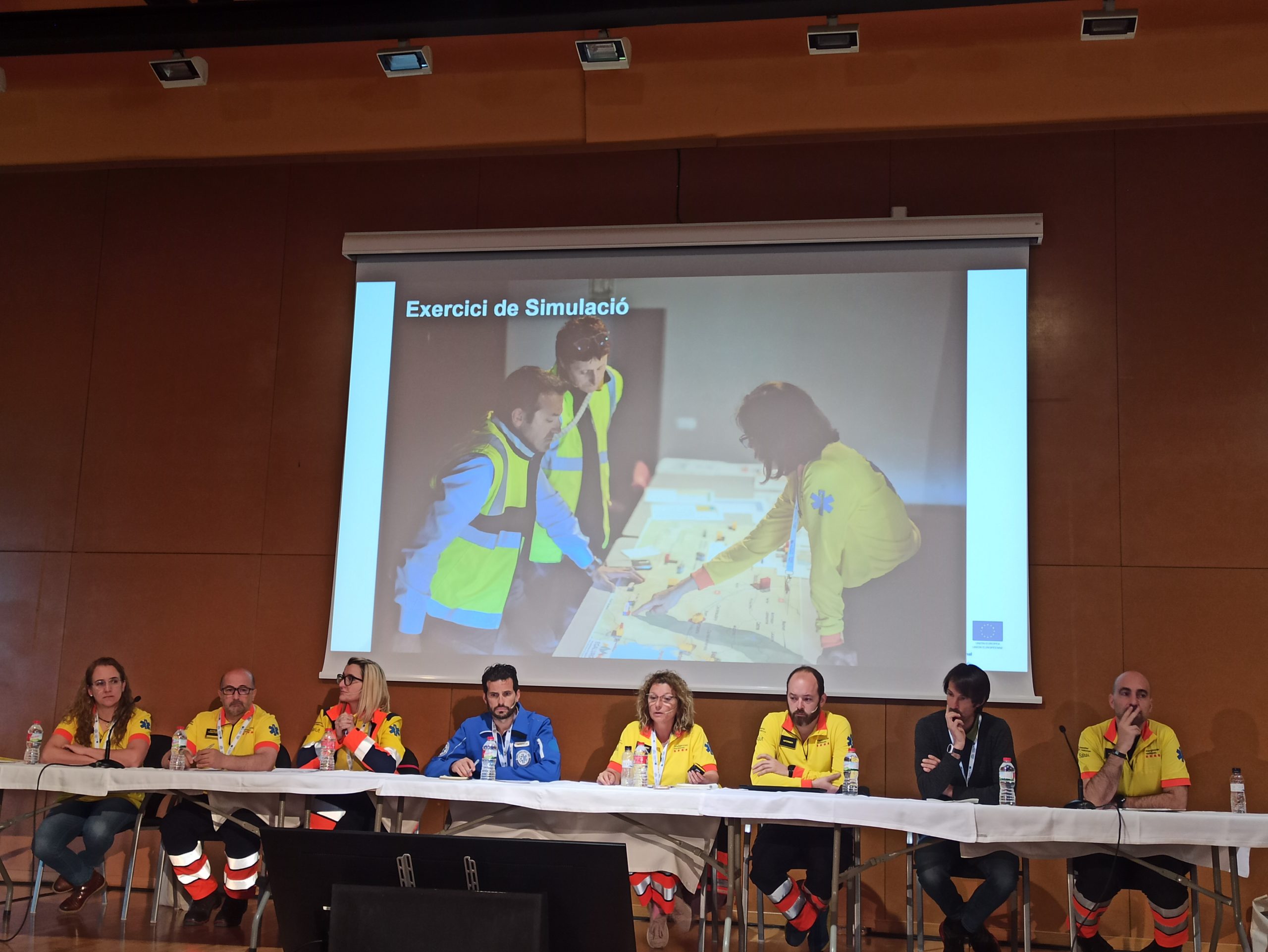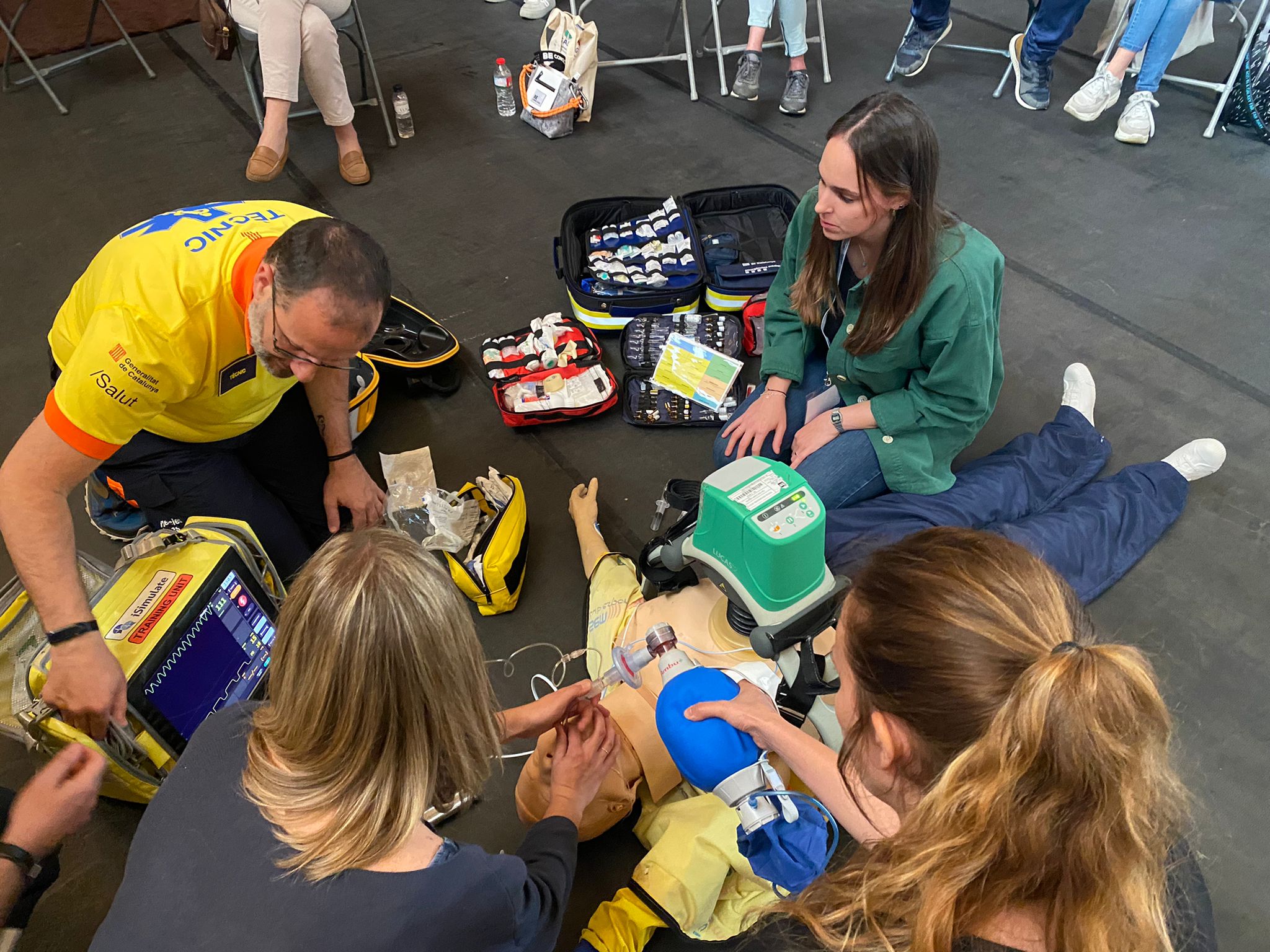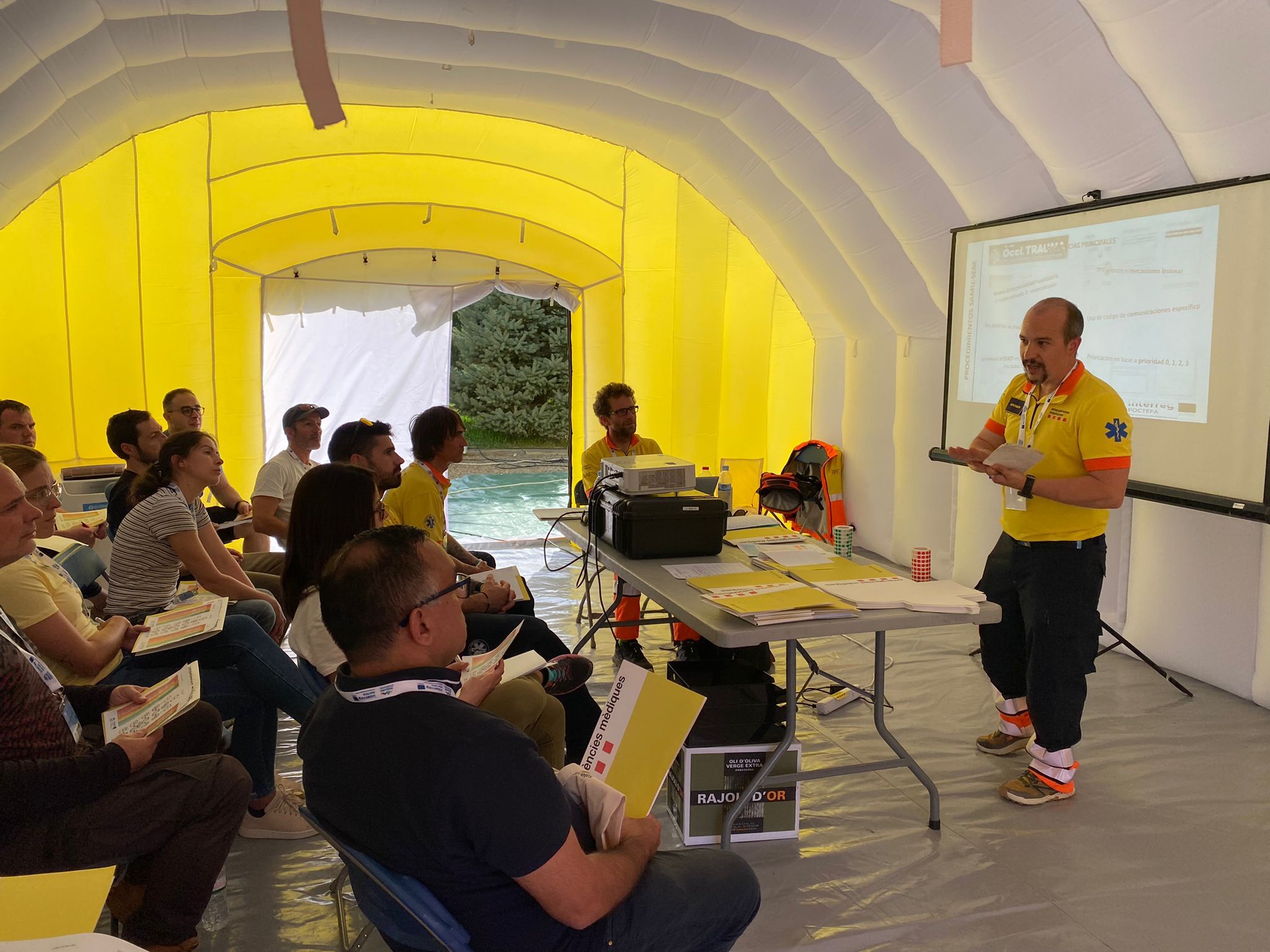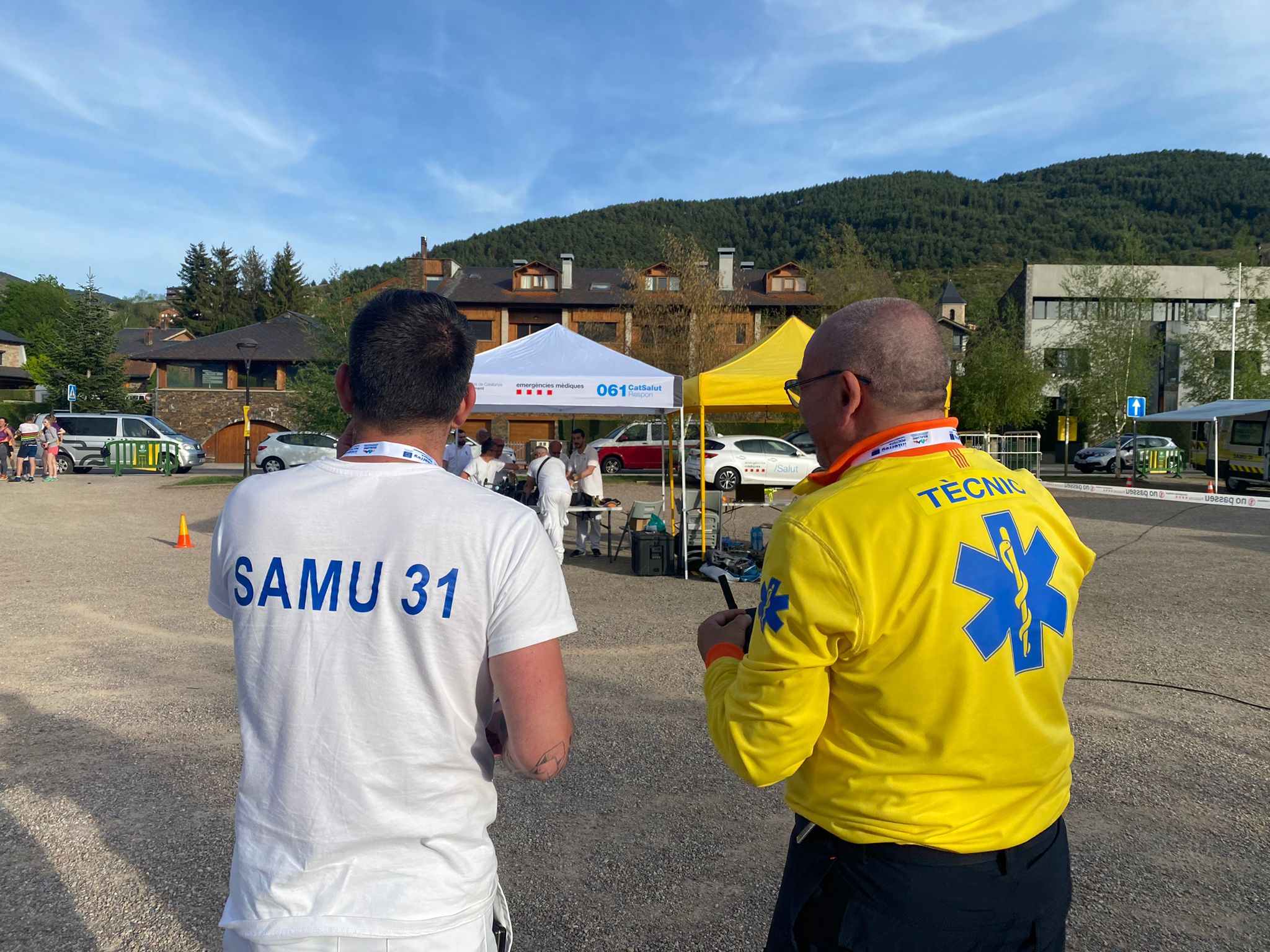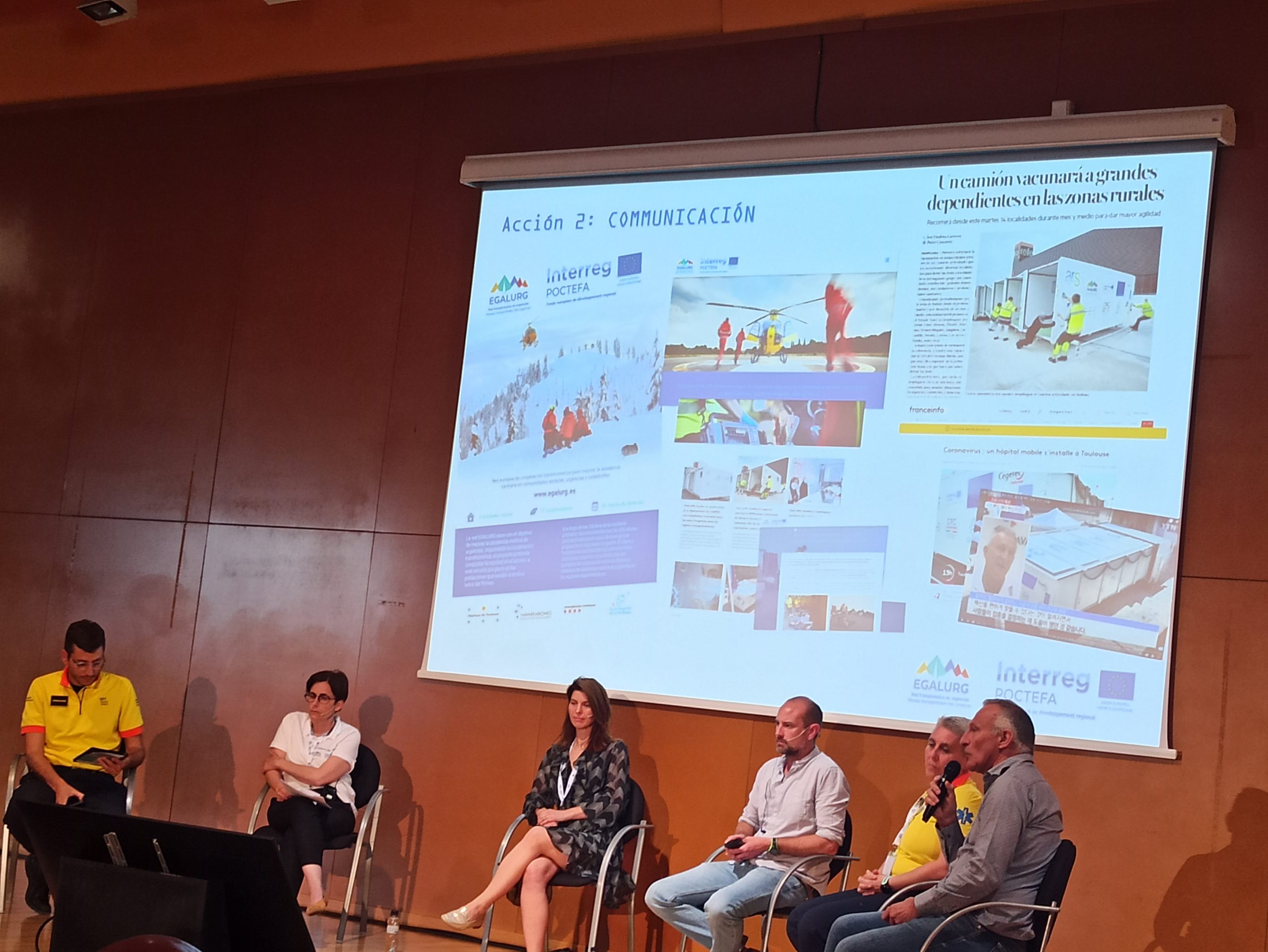Some 500 professionals, health officials and political authorities are participating in the Congress to share the results of the EGALURG project and address the future challenges of health cooperation on both sides of the border.
Around 500 people have registered for the first Cross-Border Medical Emergencies Congress being held since yesterday in Alp (Catalonia). During the Congress, the members of the EGALURG project presented the findings of the three-year project. On the other hand, the meeting allows to exchange work experiences, good health practices established during this first collaboration between the health teams of the various participating territories.
At the opening of the Congress, the speakers stressed that the Egalurg project has laid the foundations for a solid cooperation in the field of emergency healthcare between the territories on both sides of the border and has found a way to overcome the geographical and administrative barriers that condition the action of emergency medical services.
Then, in the first round table, the project members presented the tools and innovations developed during the project. Indeed, in addition to creating a European network of emergency healthcare cooperation, EGALURG has allowed to develop innovative tools and solutions in health, research, cartographic training, etc. Likewise, all the members have insisted on the smooth functioning of cooperation and the need to continue this collaboration: “We are already working on the continuity of the project in order to use and improve the tools and services developed during the project. On the other hand, the challenge will be to open the future project to other members to obtain better territorial coverage and improve healthcare in case of health emergency or catastrophe within cross-border territories.”
Launching healthcare cooperation
In addition, the Congress offers participants training activities on cross-border cooperation. Indeed, one of the main goals of the Egalurg project is to train professionals from different territories so that, when the time comes, they can work together. For this reason, in addition to conferences and round tables provided during the Congress, the tools developed during the project are presented, and workshops are organised to implement the initiatives of emergency management and transfer of clinical cases related to trauma and severely injured patients: multiple victims simulation, cross-border trauma care protocol, cross-border multiple victims care protocol, debriefing common among different institutions… are some of the topics proposed.
In this regard, today, Friday, the results and learnings of the accident drill with several victims that took place on April 21 in Llívia and in which health teams from Catalonia, France and Andorra participated for the first time, are now presented.
Finally, it should be noted that in the UMPEO (Multipurpose Mobile Unit Europe-Occitania) was deployed during the practical exercises developed by the University Hospital Centre of Toulouse. It is a unique mobile facility in Europe capable of being deployed in 45 minutes and with a capacity for 18 patients. It has been developed within the framework of the EGALURG project and has already been used on several occasions by members (COVID patient care in Bayonne, COVID vaccination in rural areas of Navarre, Llivia drill…)
